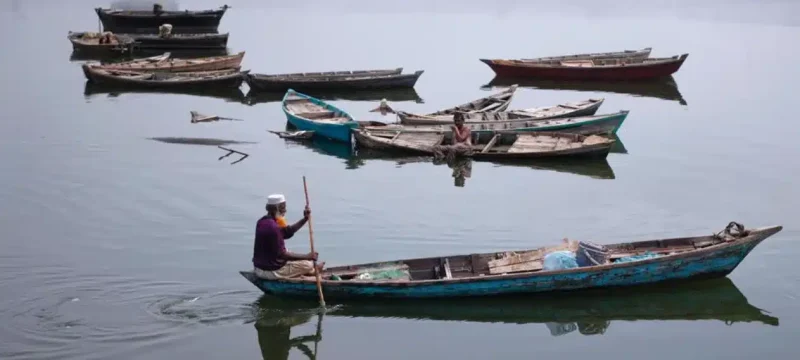The fisheries sector in Pakistan, which has long been neglected, requires comprehensive policies to transform it into a major industry and provide fishermen with the status of industrial workers, according to the leader of a fishermen’s organization.
The Chairman of the Pakistan Fisherfolk Forum (PFF), Ghulam Mustafa Miran, expressed the need for both the federal and provincial governments to develop more effective policies for marine and freshwater fisheries, aiming to elevate the sector to a significant industry. He also called for granting fishermen the status of industrial workers to ensure they receive all the benefits and rights associated with this designation.
Miran emphasized the necessity for thorough research on various fish species and their breeding, highlighting the urgency of revitalizing this long-neglected sector. Additionally, he urged policymakers to work towards lifting the bans on fish exports imposed by the European Union due to concerns about hygiene and by the US over allegations of catching turtles in fishing nets. Miran clarified that local fishermen rarely catch turtles and often employ devices to release them if they are accidentally caught during fishing. He emphasized that the growth of this industry could substantially contribute to the national economy.
Also Read: Weekly Inflation Falls but Remains Over 35%
Miran noted that approximately 2.5 to 3 million fishermen and women in Sindh make their livelihood from 1,209 freshwater lakes across various districts, along with fishing in the open sea. The fishing industry involves around 4 million fishermen and women nationwide, with 3 million located in Sindh and Balochistan. It’s a significant source of income for disadvantaged communities.
He further highlighted the issue of coastal erosion, with the sea eroding around 40 acres of land daily in areas such as Thatta, Sujawal, and Badin, resulting in the loss of approximately 2.5 million acres of land.
Miran called for the implementation of Article 73 of the UN Convention on the Law of the Sea as a goodwill gesture to secure the release of fishermen from both Pakistan and India who inadvertently cross sea boundaries due to the absence of clear demarcation. Pakistani fishermen often enter Indian waters, leading to their arrest and detention for extended periods.
Dr. Abdullah G Arijo, a prominent biologist, pointed out that Pakistan possesses substantial fishery potential in the northern Arabian Sea and has a vast coastline spanning about 1,120 kilometers, with an extensive continental shelf. The exclusive economic zone extends 200 nautical miles from the coast. He highlighted the presence of numerous fishing boats operating in coastal areas, working in shallow and offshore waters, with fishing trips ranging from a few hours to several weeks, depending on the type of fishing.
Dr. Ali Muhammad Mastoi, Director General Fisheries for Sindh Marine and Coastal Development, responded to concerns raised by the fishermen’s organization and the biologist. He assured that efforts were underway to grant fishermen the status of laborers, and this designation would be granted soon. He also acknowledged that the department was actively engaged in promoting fisheries and research.
Regarding fish export issues, Dr. Mastoi mentioned that fishermen shared responsibility for export challenges, particularly due to sanitation issues and a lack of compliance with regulations to prevent the violation of water boundaries. Additionally, he noted that private companies were venturing into marine and freshwater aquaculture in various locations in Sindh, while the department was involved in shrimp breeding in the first marine hatchery in Hawksbay.









